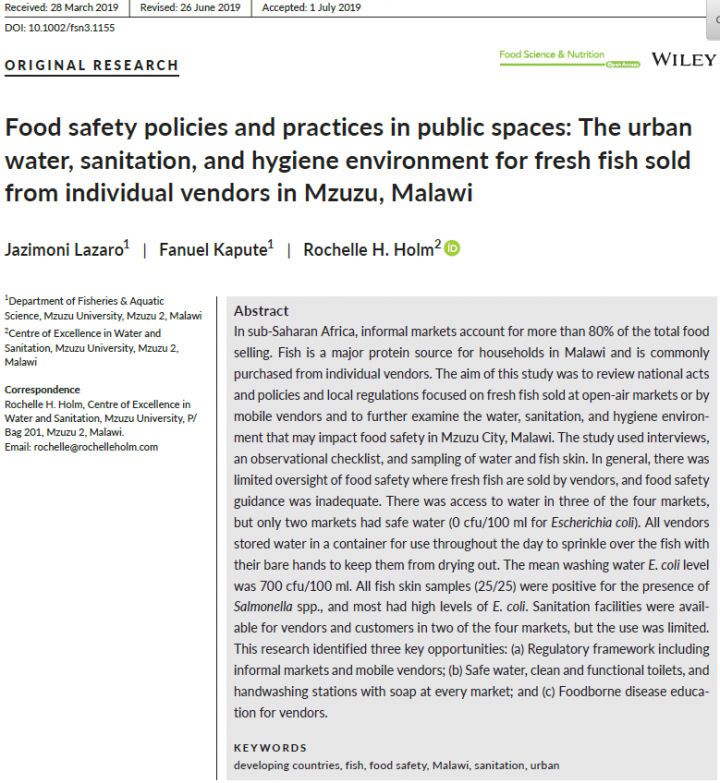Food safety policies and practices in public spaces: The urban water, sanitation, and hygiene environment for fresh fish sold from individual vendors in Mzuzu, Malawi Lazaro, J., Kapute, F., Holm, R. H. (2019)
In sub‐Saharan Africa, informal markets account for more than 80% of the total food selling. Fish is a major protein source for households in Malawi and is commonly purchased from individual vendors. The aim of this study was to review national acts and policies and local regulations focused on fresh fish sold at open‐air markets or by mobile vendors and to further examine the water, sanitation, and hygiene environment that may impact food safety in Mzuzu City, Malawi. The study used interviews, an observational checklist, and sampling of water and fish skin. In general, there was limited oversight of food safety where fresh fish are sold by vendors, and food safety guidance was inadequate. There was access to water in three of the four markets, but only two markets had safe water (0 cfu/100 ml for Escherichia coli).
All vendors stored water in a container for use throughout the day to sprinkle over the fish with their bare hands to keep them from drying out. The mean washing water E. coli level
was 700 cfu/100 ml. All fish skin samples (25/25) were positive for the presence of Salmonella spp., and most had high levels of E. coli. Sanitation facilities were available for vendors and customers in two of the four markets, but the use was limited. This research identified three key opportunities: (a) Regulatory framework including informal markets and mobile vendors; (b) Safe water, clean and functional toilets, and handwashing stations with soap at every market; and (c) Foodborne disease education for vendors.
Bibliographic information
Lazaro, J., Kapute, F., Holm, R. H. (2019). Food safety policies and practices in public spaces: The urban water, sanitation, and hygiene environment for fresh fish sold from individual vendors in Mzuzu, Malawi Food Science & Nutrition
Filter / Tags
Politicians and local decision makersPractitioners

